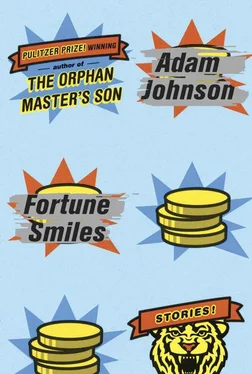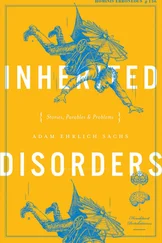—
Maybe blood was too strong a word. Yes, DJ had lived a certain kind of life in North Korea. Perhaps there had been some privileges, but were his hands bloody ? He’d never felt great about selling false hope, fake medicine and unsafe cars. And yes, the regime used the money he raised for sinister means. But it was only in the South that he’d started thinking about blood. It was only here that he heard others speak, something impossible in the North. In Hanawon, defectors told stories of eternal hunger, endless labor, random reprisals and punishments of the sort not seen since the Mongol invasions. There were tales of slavery and disappearances and prisons that sucked up entire families. There’d always been rumors, but here, DJ could gaze upon people from remote poverty-stricken provinces, places no one was allowed to visit. Here were their bodies, ropy and blackened. Here were their cored teeth, here was skin scaled from pellagra.
And then there was Google Maps. He’d become addicted to satellite photos of Pyongyang — the Mansudae Art Studio where his mother had been a painter and the Golden Lane bowling alley, where, in the shadow of the Juche Tower, he had been a teen champion. He gazed at the university where he’d taken courses in engineering, nostalgic for the way one bulb stayed lit after Pyongyang went black. This light cast its glow on the university’s statue of Kim Il-sung. When he was a college student, DJ believed the formulas they memorized would one day be used to make their country great. They all did. So when the lights went out, the students drifted down from their darkened dorm floors to sit together at the feet of the Great Leader, reading and studying by his eternal light.
Of course, a different fate awaited. Upon graduation, the bottom half of DJ’s class was given engineering positions. They actually got to design things. The top half, DJ’s half, was recruited into foreign currency — generating units. One division manufactured counterfeit pharmaceuticals. Another ran a Pacific Rim insurance scheme. Others operated drug labs or repackaged cigarettes or distributed shark fins. DJ was sent to Chongjin to oversee a press that printed fake lottery tickets. Because of its success, he was also given command of a pan-Asian used-car operation. They imported eight hundred vehicles a month from Japan, removed their catalytic converters, stripped the airbags, rolled back the odometers and dumped them dirt-cheap in China.
It was hard to look at images of Chongjin. Even from space, you could see the toxic-waste dumps, the rusting steelyards, the foothills riddled with an infinity of famine graves. The black specks dotting the main square were beggar kids, sleeping in the open. The tent city near the shipyards housed teams of guards shifting on and off prison vessels. And along the tracks west of town were the boxcars, packed with families, awaiting departure for the penal mines of Mantapsan and the Hwasong concentration camp.
It was Sun-ho who had protected him from all of this. From the moment DJ stepped off the train in Chongjin and was assaulted by kotjebi kids begging for food, Sun-ho was there to shoo them away. Sun-ho handled the drifters who swarmed their black sedan. Sun-ho kept the dockworkers in line and stood up to the ferry crews from Niigata. He faced down the Chinese lottery ticket peddlers in Yanbian and bribed the Bowibu. Even in the darkest days of ’97, when humans were eating the paste off propaganda signs, Sun-ho arrived each morning with fish and rice, and DJ didn’t have to ask where the food came from.
But what good was rethinking all this when North Korea was a place he’d never see again? It was Seoul he had to wrap his head around. And the longer they were here, the more it seemed their roles were reversing. It was Sun-ho who needed a guardian now.
—
DJ took Sun-ho’s advice and went to a different meeting, but instead of heading for the glitz of Gangnam, he found a different meeting in Gwanak, one not far from a south-bank bus terminal. The new meeting was in a gritty urban church whose cross was fashioned from neon. When he approached, an alcohol-support group was on break. All the alcoholics were out front smoking and trading their jumpy energy. As the defectors filed past, DJ could read their minds: My life may be a wreck, but at least I wasn’t born in the North .
Metal chairs ringed the basement. Above was a portrait of Yesu-Nim wearing a crown of thorns. When the meeting began, great tribute was paid to Him. Like everyone else, DJ bowed. There were no hot Gangnam moms running things — only Christian ajummas, serious in their demeanor.
The defectors went around the room introducing themselves, mentioning things like age, province of birth, date of defection. Then you had to say three things that were great about life in the South. People listed the usual things: freedom, opportunity, the Internet and so on.
There was a young woman, quite poised, with the beauty of some celebrity defectors, except she guarded her eyes. Without her accordion, DJ almost didn’t recognize her.
“I’m Mina,” she said. “From North Hamgyong Province. I was a schoolteacher until my troubles came.” Perhaps because she was distracted or wasn’t listening, she listed three things that were great about life in the North . “I miss going to karaoke and the hot springs with my friends. I miss my students most of all.” She paused, then added, “This time of year, the weather makes me think of deer. Before the famine, my father raised them for their antlers. I loved their little horns — how they felt like moss and smelled of cold stream water.”
The North was a land of thuggery, corruption, brutality and murder. But Mina was right. There was beauty to be found in Chongjin. Under the tufted rime of winter, even the husks of old Soviet factories could be beautiful — gantry cranes frozen under fat white clouds; abandoned zinc carts crenellated with frost; rusted conveyor belts standing sentinel over garbage-glinting icebergs drifting south from Vladivostok.
DJ studied Mina’s bobbed hair, her elusive eyes. The only place for karaoke in Chongjin was the Seamen’s Club, a late-night hangout for big shots and Party officials. And you had to know people in the military to gain access to the Onpho hot springs. He wondered if her husband had held rank in the navy. There were only so many commissions, and that alone was a pretty good way to find yourself among the missing.
When it was his turn to speak, he didn’t want to admit he was from Pyongyang.
“I defected from North Hamgyong Province” was all he said.
And what positive things could he list about life in the South, that he appreciated only burgers, Google Earth and the reading glasses they’d given him? He didn’t want to fall into reverie about the North. He did miss Chongjin, the salty smell of fishing nets hung to dry, the jade-green waves of the East Sea. He missed traffic girls, pastel housing blocks and roaming calisthenics squads at dawn, none of which he’d ever see again. He missed women in rabbit-fur coats. He missed winter radishes, pulled cold from the dirt and wiped clean in the snow. He missed the power going out each evening, how a nightly blanket would be thrown over you and the person you were with, how the intimate conversations you’d held back all day would suddenly begin.
Mina’s eyes found him. He realized everyone was looking at him.
“I appreciate democracy, freedom and the variety of television programming,” he said, then added, “But I do miss how dark it used to get.”
He received a few disappointed looks for this counterproductive commentary. At the end of the meeting, when Yesu-Nim was again worshipped, Mina slipped out, and DJ followed her. She walked down Bongcheon-ro, toward Boramae Park.
Читать дальше












